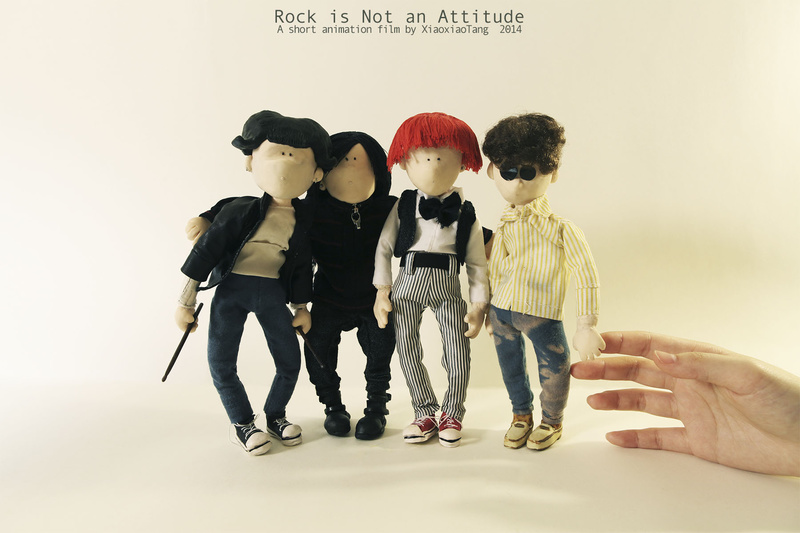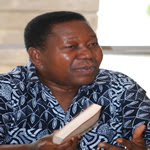ROFFEKE: In part 2 of the interview, you said: “…something often overlooked in creative
processes is that experimenting with mistakes often leads to entirely
new ideas, possibly even the best ones!” Please share any examples
either from “The Heaviest Order” or any other creative work of yours
where mistakes took you in new and interesting directions.
PETER Böving: In my first "life," I was a musician – 25 years on live stages and in a
constant process of learning. There, I recognized the approach of "Error
as Opportunity" and quickly cultivated it. Whenever tonally thrown off
track while improvising, I noted that mistake – or, more
sympathetically, the blue note – in the corresponding context and firmly
integrated it into the further arrangement from that moment on.
Ideally, one then weaves unpredictable turns in their improvisation on
these detours. The crucial aspect is to "sell" what one is playing
outwardly and always know where the emergency exit is, if in doubt... In
filmmaking, I experience these moments much less frequently. A surefire
way to create surprising moments is to "overlay" music or sounds onto
one's films, ones that one would never have thought could fit together
or complement each other. Approaching such a process openly ensures that
one can certainly hear where a "match" can occur.
ROFFEKE: In part 2 of the interview, you also mentioned that your parental home influenced you to
prevent food waste. In what ways did your parental home influence you in
terms of creativity and the arts?
PETER: In addition to a few obligations, I was allowed to be a child. I would
say that I played disproportionately much – often with things that were
not necessarily age-appropriate. I essentially disappeared for years.
Once, when my parents went on a summer vacation with my brothers, I
chose to stay alone with my grandmother. During that period, I built
ancient Rome from Kellogg's Cornflakes packages. When my family returned
after weeks of relaxation, my fingers were sore, I was chalk-white with
a happy face, and most importantly: Rome was completed!
ROFFEKE: “The Heaviest Order” has been featured in many film festivals
all over the world. What advice would you give regarding making a
film’s festival circuit successful?
PETER: This is something that probably few filmmakers are truly deeply involved
in. My films also vary too much for me to create a guide to success.
A good idea or story, combined with originality and unique
features, in my opinion, form a solid foundation for a film to gain
attention at festivals. Impressive visuals and witty dialogues can also
contribute, but in my opinion, they only bring something when the first
point is fulfilled as well. Festival short films are, in any case, the
ideal playground to experiment. Courage is often rewarded in the
festival scene more than one might assume. Even if things don't go well
at festivals, at least there is enjoyment in the production process.
What has personally helped me often: In addition to festival
regulations, I also review photos from past screenings. If the
atmosphere appeals to me and I feel I would enjoy being a guest there,
it serves as a deciding factor for me to submit my work.
ROFFEKE: In “The Heaviest Order” there is a scene where the words “Something not right in Denmark” appear. I searched Denmark and food waste and came across a
2017 BBC article which said: “Around 29,000 tonnes of bread and cakes are discarded every year in Denmark, mainly because it is sold in portions larger than people need….” The article also says: “Yet Denmark now has more initiatives tackling food waste than any other country in the world.” It seems Denmark is tackling the food waste problem, so I’m curious, what were you referring to in that scene? :-)
PETER: "Something is rotten in the state of Denmark" is just a saying
originating from William Shakespeare's play "Hamlet." In Germany, it is
often used to point out discrepancies, corruption, or general issues in a
situation. In reality, it doesn't have much to do with the
"present-day" Denmark. On the contrary, the Scandinavian countries are
always one step ahead of other European states in terms of environmental
protection, quality of life, innovation, and technology. So, dear
Danes: No hard feelings, but you are also a bit to blame. This example
vividly illustrates that not only does the internet not forget...
(The BBC article is "The country where unwanted food is selling out" by Prathap Nair, 24th January 2017. Look out for part 4 of the interview. You can read part 1
HERE and part 2
HERE)





























































































































































































No comments:
Post a Comment